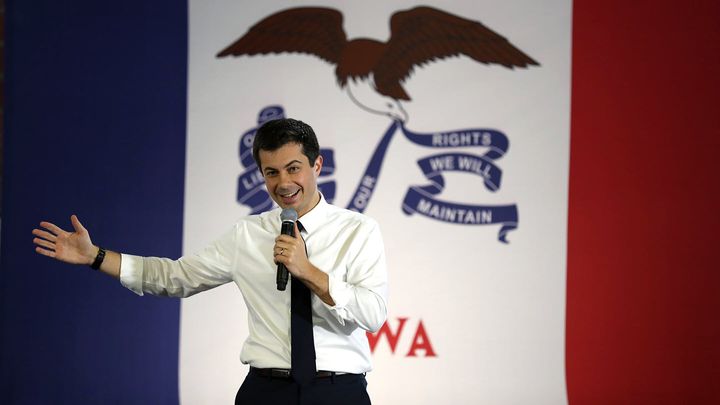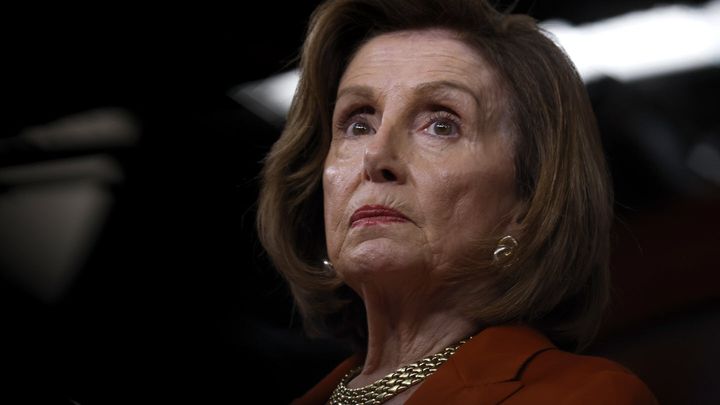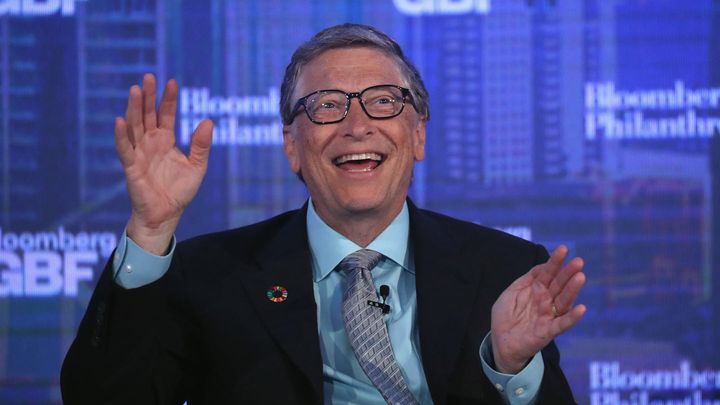The American Prospect is a nonprofit, independent magazine covering public policy and politics. Sludge is re-publishing this article.
A compliance attorney with miscreant bank Wells Fargo is part of a small group advising the Pete Buttigieg campaign on antitrust policy, the Prospect has learned. The attorney, Joseph Vardner, continues to work at Wells Fargo while advising the campaign; emails between members of the advisory group and campaign officials would go to his Wells Fargo email address. (UPDATE: The Buttigieg campaign claims that they did not send information to Vardner’s Wells Fargo email.)
Buttigieg spokesperson Sean Savett confirmed to the Prospect that Vardner has advised the campaign. “He is one of dozens of volunteer policy advisors on economic issues, none of whom are compensated,” Savett wrote in an email. Savett added that Vardner was not the lead of the antitrust policy team. Emails and phone calls to Vardner have not been returned.
Campaigns routinely seek advice from unpaid volunteer experts, who come from think tanks, academia, and the private sector. But any Democratic campaign using someone still employed by Wells Fargo for such a purpose is playing with fire, given the bank’s well-earned reputation for swindling customers.
The Buttigieg campaign hasn’t actually produced an antitrust policy, though there are some nods to antitrust rules in other policy planks. But perhaps more worryingly, the campaign appears to be employing tactics right out of the corporate monopoly playbook, imitating the way large firms use their leverage to impinge on the rights of their employees, despite releasing a plan for worker empowerment.
For example, when one individual who was informally advising Buttigieg’s campaign over the summer decided to leave, an official with the campaign asked them to sign a non-compete agreement. This would prevent the adviser from working with other campaigns. The adviser did not sign the non-compete. For obvious reasons, they preferred to keep their identity secret.
Already, the adviser had signed a non-disclosure agreement to not divulge secrets from inside the campaign. At the time, the adviser thought NDAs were standard among campaigns (they aren’t; the only campaign I can think of that regularly used NDAs was Donald Trump’s in 2016). Some employers use non-disclosure agreements to hide unsavory information from coming out about their practices.
Savett, the Buttigieg campaign spokesperson, said that some advisers have signed NDAs, but denied that anyone affiliated with the campaign has signed a non-compete agreement.
A campaign asking advisers to sign non-compete agreements would be highly unusual. “Non-competes are malevolent in the policy world,” says Jeff Hauser of the Revolving Door Project, who stresses that campaigns, congressional offices, and policy experts share information all the time, and making certain advisers or the information they offer proprietary would damage this framework.
Corporations have habitually used non-compete agreements as a means to hold down employee wages. Janitors, summer camp counselors, hairstylists, and interns have been forced to sign non-competes, which restrict where they can work and subsequently reduces the labor pool. In 2018, state attorneys general forced seven fast-food chains to stop using non-competes to prevent their employees from seeking other jobs in the industry.
Savett says that Buttigieg supports banning non-competes, though his fairly robust worker empowerment plan is silent on that topic. It does include policies to support sectoral bargaining, fight misclassification of employees and unfair work scheduling, and ensure equal pay.
Says Matt Stoller, a fellow with the Open Markets Institute, about the use of a Wells Fargo lawyer for policy generation, as well as the NDAs and non-competes: “I guess I would say it’s very on-brand.”
Vardner Graduated from Harvard Law School in 2011, and worked for a few years out of school in the antitrust division of the Justice Department as a trial attorney, including work on the aborted AT&T/T-Mobile merger. Afterward, he moved to white-shoe law firm Gibson, Dunn & Crutcher, and then in 2018 joined Wells Fargo as an antitrust compliance officer; his portfolio there also covers consumer protection. Vardner is also an adjunct professor at Georgetown Law.
Wells Fargo, of course, has been at the heart of a series of overlapping scandals in recent years, from fake accounts to force-placed insurance, suggesting significant weaknesses in their compliance regime. Senior Wells Fargo executives are now under criminal investigation for their conduct in the fake-accounts scandal.
While mayor of South Bend, Indiana, Buttigieg worked with Wells Fargo, receiving a $50,000 community grant in 2018 for training minority- and women-owned businesses to get city contracts. South Bend has lagged behind many cities in this area, granting just 3 percent of its contracts to minority- and women-owned businesses in the last few years of Buttigieg’s tenure, which ended on January 1.
A campaign asking advisers to sign non-compete agreements would be highly unusual. “Non-competes are malevolent in the policy world.”
The policy that Vardner and others were working on for the Buttigieg campaign through the summer never came out. Sources indicate that the plan cooled sometime after Sonal Shah, herself a former Goldman Sachs and Google executive, joined the campaign as a policy director.
But just because the Buttigieg campaign didn’t release a formal antitrust policy doesn’t mean that advice on the issue wasn’t valuable, says Hauser. “What people don’t say can be as influential as what they do say,” he notes. “If you’re raising a ton of money from private equity, getting a trusted person to comfort potential donors may be valuable. The product of the work may exist with Buttigieg talking to his investors.”
We do know that Buttigieg has enjoyed generous fundraising support from the financial sector, including from top antitrust advisory law firms. Buttigieg has received more money from Sullivan & Cromwell than any other presidential candidate; lawyers who maxed out to the campaign shuttled through mergers like Amazon/Whole Foods and Bayer/Monsanto, while also representing numerous big banks that routinely advise mergers. At least 20 different Sullivan & Cromwell partners have staked Buttigieg with donations, and at least two served as bundlers, raising at least $25,000 for the campaign.
Christine Varney, the former head of the antitrust division of the Justice Department under Barack Obama, who broke a celebrated promise to crack down on agricultural monopolies, has also maxed out to Buttigieg.
Vardner’s role as an informal adviser is part of a wave of expert assistance that floats around political campaigns. Most campaigns use outside advisers to bounce off ideas and generate policy.
For example, Joe Biden has the support of Terrell McSweeny, a former domestic-policy staffer for the vice president and a commissioner on the Federal Trade Commission. She is now a partner at large D.C. law firm Covington & Burling, serving corporate clients. McSweeny, who wrote papers expressing the importance of antitrust policy for the Biden Forum, part of Biden’s now-shuttered foundation, is among a network of informal advisers to the former vice president’s campaign. She holds no formal role or specific policy portfolio within the campaign, according to a Biden campaign official.
McSweeny served at the FTC as it struggled to rein in Big Tech, despite copious evidence of anti-competitive behavior. While at the FTC, McSweeny signed onto an amicus brief that took the side of the Chamber of Commerce and Uber against the city of Seattle, which wanted to allow rideshare drivers to collectively bargain. McSweeny justified that action by calling it a “limited” question about granting antitrust immunity to cities or states. (It should be noted that Biden tweeted support for rideshare drivers last May, and his worker plan endorses making gig economy workers employees.) By the end of her tenure in 2018, McSweeny had to recuse herself from several votes because she had already accepted the Covington & Burling job.
“There’s no reason for Biden not to be aggressive on this … The basic problem is McSweeny.”
Sources have suggested to the Prospect that McSweeny’s advice has given pause within the Biden campaign over how hard to go after Big Tech and corporate concentration more generally. A Politico article from October called it a “live issue” inside the Biden campaign. “There’s no reason for Biden not to be aggressive on this,” says Stoller. “The basic problem is McSweeny.” The employing of corporate-linked individuals as campaign policy advisers creates these kinds of tensions.
Biden’s campaign has also received many donations from antitrust and other white-collar defense attorneys. A recent Biden fundraiser was held at the downtown D.C. offices of Arnold & Porter, perhaps the most connected antitrust law firm in the country, with links to several current and former officials in the Justice Department and Federal Trade Commission. Mike Trager, co-chair of the firm’s Securities Enforcement and Litigation Practice Group, hosted the event.
Buttigieg’s dalliances with NDAs and non-compete agreements, however, take things to another level by using the tactics of large corporations within his own campaign. No information has yet come out about other 2020 Democratic campaigns asking advisers to sign non-competes or forcing staff to sign NDAs.
There’s not a little irony here; Buttigieg himself had to sign an NDA covering his service at large consulting firm McKinsey. The candidate has repeatedly asked McKinsey to release him from his NDA, and in December, McKinsey complied.
There’s no word on whether the Buttigieg campaign has honored any request to release staff or advisers from the same confidentiality agreements.
This piece has been updated to add context to Terrell McSweeny’s actions regarding Uber in Seattle.
Related:
McKinsey Employees Open Their Wallets for Alumnus Pete Buttigieg
Buttigieg Bundler is a Natural Gas Consultant at McKinsey
Here Are the Lobbyists and Corporate Execs Collecting Checks for Pete Buttigieg



